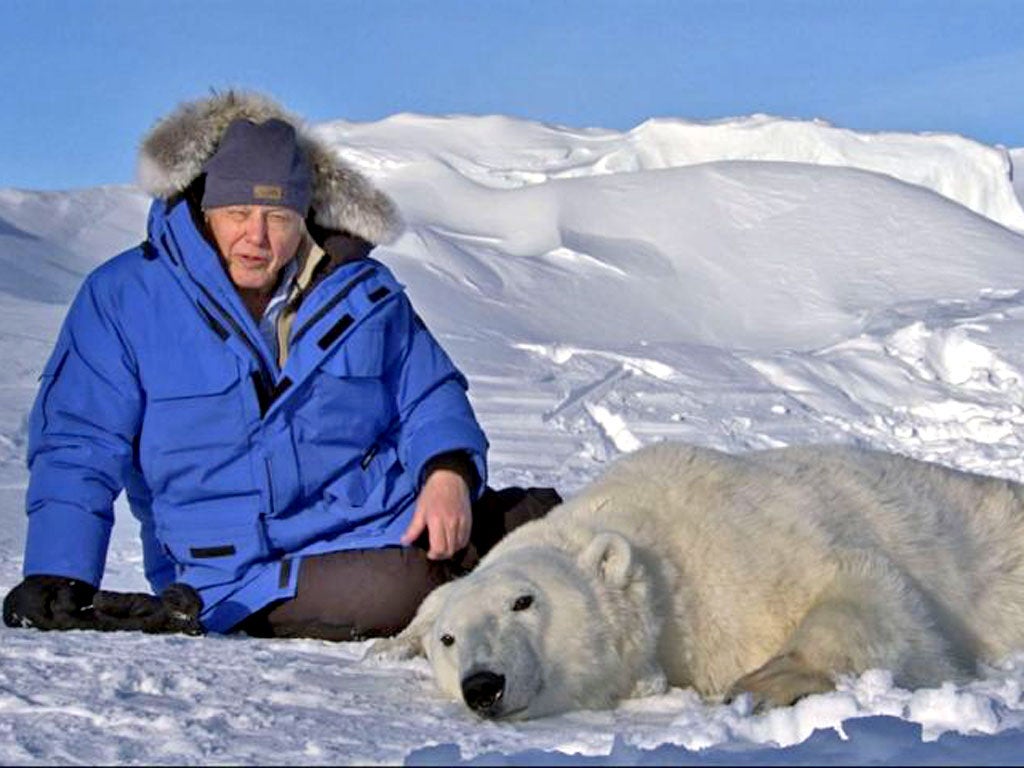The future of BBC's blockbuster nature shows such as Frozen Planet and Life under threat
Broadcaster risks losing flagship programs following claims major backer will not renew multi-million pound deal

They were the lavish programmes that revealed the natural world to television audiences in stunning detail and garnered the BBC almost universal praise.
But now the corporation’s flagship nature programming could be under threat following claims that the major backer of series including Frozen Planet will not renew its multimillion-pound deal with the broadcaster.
The corporation extended its deal with Discovery Networks International in 2010 to co-produce landmark factual programming until 2014. But according to trade paper Broadcast, discussions on renewal have closed.
At the time the deal was signed, the BBC said it offered “exceptional value for licence fee payers” as the worldwide revenues generated by its blockbuster natural programming far outstrip production costs. The partnership is thought to bring in around £35m per year.
However, it will become more difficult to justify the risk of financing multimillion-pound, multi-year projects without the backing of another major broadcaster, their makers warned.
Among the fruits of the partnership, which began in 1998, were scenes of killer whales snatching baby sea lions from the shore in 2001’s Blue Planet. Planet Earth, screened in 2006, had Sir David Attenborough narrating footage of snow leopards hunting in the mountains, and lion predation on elephants. But such scenes are expensive to produce, said Tim Haines, the creator of Walking With Dinosaurs – one of the partnership’s big success stories. He added that Discovery was moving away from high-end content and focusing instead on less expensive fare.
“For money per minute on screen, having to sit for five years in the frozen polar regions filming is very pricey,” he said. “If you film people going about their everyday lives, of course that’s cheaper.”
The low-cost approach has spawned what are among Discovery’s most popular programmes in the US – Deadliest Catch, which follows the lives of fishermen in Alaska, and Gold Rush, a constructed-reality show about miners.
When Mr Haines began working on Dinosaurs, producers pushed him to “make it bigger” despite being warned it would cost £2m per hour of footage. He said that broadcasters may soon realise there are “too many Gold Rush people” and instead order a “gigantic programme on volcanoes”.

Watch Apple TV+ free for 7 days
New subscribers only. £8.99/mo. after free trial. Plan auto-renews until cancelled

Watch Apple TV+ free for 7 days
New subscribers only. £8.99/mo. after free trial. Plan auto-renews until cancelled
Mr Haines said he would be sad to see the partnership end, but added: “It’s not surprising either, because there aren’t many projects that fitted both channels’ needs perfectly.”
He said: “They’ll go on wanting big, signature pieces but it will be more difficult to find the money to support them because the BBC cannot find the money to do it by itself.”
Tim Westcott, a television analyst at IHS Screen Digest, said that as a result of the licence fee being frozen for six years in 2010, the corporation has to watch its pennies more carefully. “It’s riskier financing a very large wildlife series which takes a long time to produce and costs a great deal to make – even if once they’re exploited they sell very well,” he said.
The end of the partnership, Mr Westcott said, is “inevitable” because of Discovery’s ambitious plans to become a global broadcasting force.
Discovery declined to comment. Danny Cohen, Director of BBC Television, said: “Natural History programming has always been a core part of our DNA and we have ambitious plans. There will certainly be no reduction in this vital strand of programming in the UK or internationally.”
A profitable partnership: The big hits
Walking With Dinosaurs
This 1999 series cost £6m for six half-hour episodes – the most the BBC had spent on a TV show at the time. Ten years later, the spin-off arena show sold tickets worth £16m in the UK alone.
Blue Planet
Aired in 2001, its underwater filming pushed costs to £7m. But it was sold on to 150 territories for £5m, while book and DVD sales generated a further £13.5m.
Life
This £10m David Attenborough-narrated series was turned into One Life, a documentary film which proved particularly popular with Japanese audiences, earning £10m.
Subscribe to Independent Premium to bookmark this article
Want to bookmark your favourite articles and stories to read or reference later? Start your Independent Premium subscription today.

Join our commenting forum
Join thought-provoking conversations, follow other Independent readers and see their replies